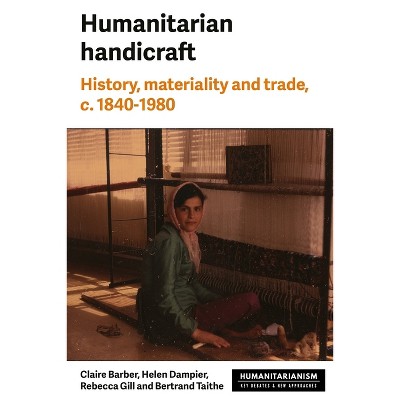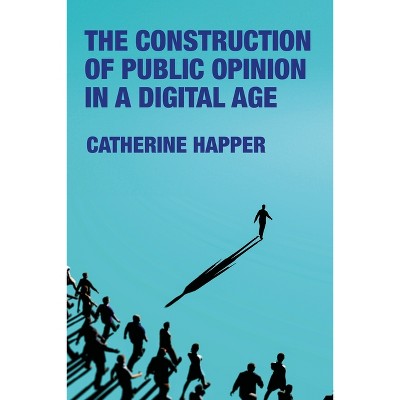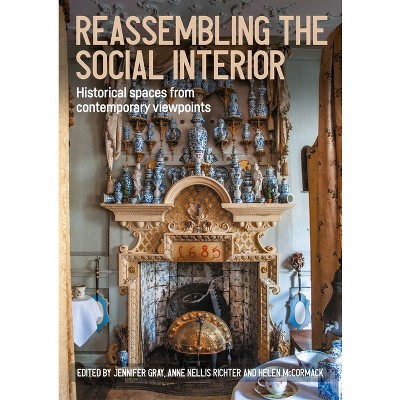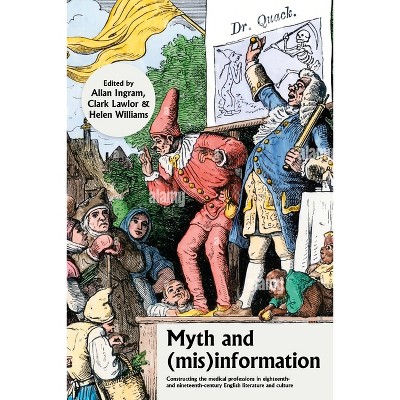Sponsored

Youth and Sustainable Peacebuilding - by Helen Berents & Catherine Bolten & Siobhan McEvoy-Levy (Paperback)
In Stock
Sponsored
About this item
Highlights
- Sustainable peace involves more than simply including youth in official peacebuilding mechanisms or recognizing their local peacebuilding work; it requires a transformation in thinking about the youth as actors in the world of security and peace.
- About the Author: Helen Berents is Senior Lecturer and Australian Research Council DECRA Fellow with the School of Government and International Relations at Griffith University.
- 288 Pages
- Political Science, International Relations
Description
About the Book
A critical analysis of how peacebuilding can become sustainable through transforming thinking about what youth participation and leadership entails.Book Synopsis
Sustainable peace involves more than simply including youth in official peacebuilding mechanisms or recognizing their local peacebuilding work; it requires a transformation in thinking about the youth as actors in the world of security and peace. Using case studies from around the globe, the contributors to this volume analyse why states are afraid of their young people, why 'youth participation' in formal peace processes matters but is insufficient, and ways that young people are working outside of official systems to create and nurture peace on their own terms. The volume offers guidance for ways to bridge the disconnect that exists between institutional assumptions and expectations for youth as peacebuilders and the actual sustainable peace leadership of youth. Throughout, it emphasises a critical approach to peacebuilding with, for and by youth.From the Back Cover
Peace processes around the world are not sustainable unless they take young people-who have the most to lose from continued conflict-seriously. The recent global Youth, Peace, and Security Agenda (YPS) officially recognised the "positive" role that young people can play in peacebuilding processes, which means that the time is ripe to consider exactly how youth are or are not "inclusively represented", do and do not undertake "meaningful participation", and are recognized-or fail to be recognized-in the in the institutions and practices of global peacebuilding. The contributors to this volumeexplore the significance of YPS and use case studies from around the world-from South Sudan to the Asia-Pacific region, from Colombia to the USA-to assess the current state of young people's participation, inclusion and innovation in peacebuilding. They argue that states are often afraid of the potential revolutionary power of their young people, which lead them to systematically marginalise their youth. When formal "youth participation" becomes a way of safely invisibilizing young people in official peace processes, it falls far short of the contributions young people need to make to ensure that peace is sustainable. Youth often find more success working outside of official systems to create and nurture peace on their own terms.The contributors offer guidance for ways to bridge the disconnect that exists between institutional assumptions and expectations for youth as peacebuilders and the actual sustainable peace leadership of youth.Review Quotes
'With the participation of the youth in contemporary peacebuilding processes, we face two main challenges. First, young people are often seen as a problem or potential agent of conflict, and second, even if their potential as an agent of peace is recognized, the basis of their participation is often tokenism at best. This is why Youth and sustainable peacebuilding is a must-read for researchers and practitioners, as this volume tackles both challenges head-on with excellent contributions on a myriad of critical issues, processes, and cases.'
Alpaslan Özerdem, Dean of the Jimmy and Rosalynn Carter School for Peace and Conflict Resolution, and Professor of Peace and Conflict Studies, George Mason University
The aspirations and lived experiences of young people are at the heart of this book. Rich in detail, the compelling and fresh interpretations unmask both tensions and possibilities of the YPS agenda. Contributors reveal underlying injustices, oppression, and co-optation of young lives. We learn how inherently securitised, environmental, and economic stresses marginalise young people.
The empirical evidence persuasively tells us that collective sharing of knowledge and a radical vision of youth participation and inclusion are prerequisites in the transformative practices of peace.
A must-read for academics and practitioners of youth, sustainable peace, and justice.'
Bina D'Costa, Professor of International Relations, Australian National University 'In focusing on youth-centered activism and approaches to peace, this volume challenges - and potentially contributes to changing - what 'experts' and policymakers believe they know about peacebuilding.
This agenda-setting volume offers a rich contribution to the Youth and Peace and Security (YPS) agenda - at the intersection of policy, practice, and scholarship, as well as in the ways that local YPS practice can sophisticate and define global policy.'
Graeme Simpson, Principal Representative (NY) & Senior Peacebuilding Adviser, Interpeace. Former Lead Author of the Independent UN Progress Study on YPS: The Missing Peace
About the Author
Helen Berents is Senior Lecturer and Australian Research Council DECRA Fellow with the School of Government and International Relations at Griffith University. Catherine Bolten is Professor of Anthropology and Peace Studies at the University of Notre Dame. Siobhan McEvoy-Levy is Professor of Political Science and Peace Studies and Director of the Desmond Tutu Peace Lab at Butler University.Shipping details
Return details
Trending Non-Fiction











